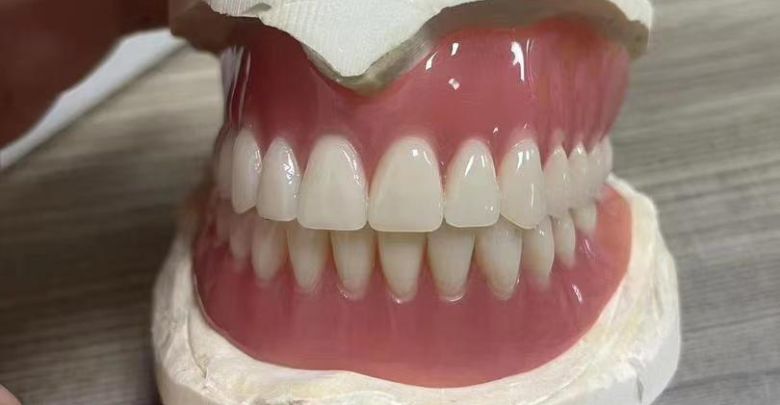
A Fresh Start Congratulations on your new smile! A positive step towards improving your chewing ability and supporting your facial contours. Although the newer iteration of dentures is more comfortable and natural to wear, your mouth will need time to adjust to the process of wearing them. Your patience and positive attitude are the most important factors.
Stage 1:
On the day you get your dentures, carefully observe the shape and structure of your dentures to understand their position in relation to the top and bottom, front and back, left and right positions, and to clarify the position of the clasps, abutments, etc. The first 24 hours are the most critical stage in the acclimatization process.
Your main goal is to get your mouth and brain used to the new sensations. Your dentist will generally recommend that you wear your dentures continuously for the first day, including while you sleep. This helps to control the swelling of your gums, and your dentist will be able to pinpoint any adjustments that need to be made during your first follow-up appointment.
And be careful with your diet: avoid chewing and recommend choices such as milkshakes and porridge, protein drinks, broth, yogurt, mashed potatoes and fruit juices. It is normal if there is a slight pain. However, if sharp or severe pain occurs, do not “take it”, contact your dentist and make an appointment to have your dentures adjusted immediately.
Phase 2:
During the first two weeks, you will be actively acclimatized to wearing dentures to perform daily activities such as eating and speaking three meals a day. Mastering eating techniques: Eating with dentures will feel very different and you will have to relearn how to chew.
Make a conscious effort to distribute food to both sides of your mouth and chew at the same time. This will help prevent your dentures from tilting or wobbling. Chew slowly: Take your time and don’t rush. Chewing too fast can cause your dentures to fall out.
And you need to (temporarily) avoid sticky foods: nougat, toffee and hard foods can damage your dentures or cause discomfort. The most important thing to remember is to clean your mouth: remove your dentures after each meal, brush them gently with a soft-bristled toothbrush and water to remove food debris, and soak them in cold water before going to bed.
Pay attention to the oral reaction from time to time: pay attention to the oral mucosa whether there is pressure pain, ulcers and so on, if there is such a situation, please do not wear forcibly, you can temporarily remove the dentures, and seek medical attention in time.

Stage 3
After one month belongs to the functional recovery stage after your dentures should start to become more and more natural. The initial pain (after many adjustments) may have subsided and you are becoming more skillful and comfortable in eating and speaking. Regular professional care is also vital, so be sure to visit your dentist at least once a year.
Your dentist will check the fit of your dentures, examine your mouth for any signs of a bad fit, and perform a professional cleaning. Over time, your alveolar bone and gums can shrink and change shape, causing your dentures to become loose. Relining is a restorative procedure in which your dentist adds a layer of new material to the inner surface of your dentures to re-match them to the current shape of your gums, restoring their tightness and comfort. This usually needs to be done every few years.
Conclusion
Getting used to your new dentures is a process that can take weeks or even months. It requires you to be patient with yourself. After reading the article hopefully you will be more prepared to overcome your initial fears and wear your dentures with skill and confidence. Remember to stay in constant communication with your dentist, diligently practice your new eating and speaking skills, and adhere to good oral hygiene habits.
